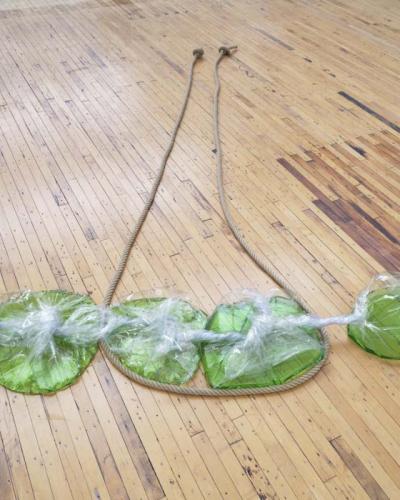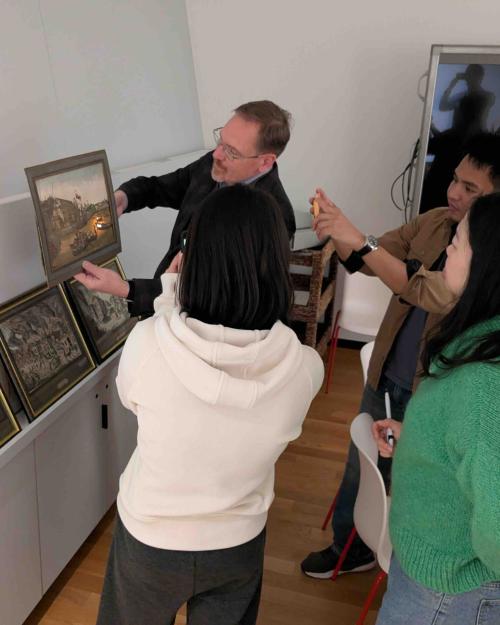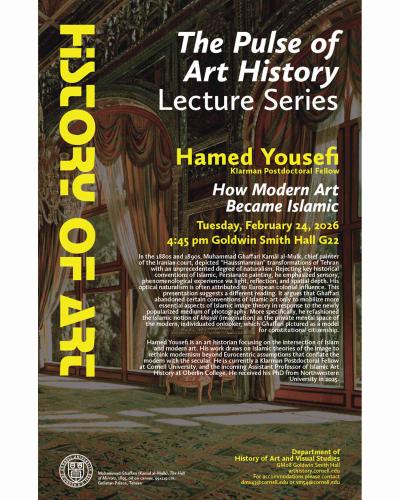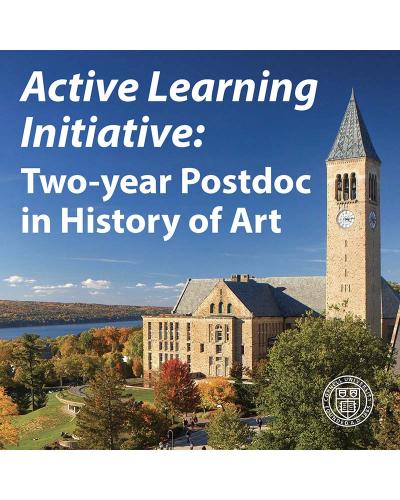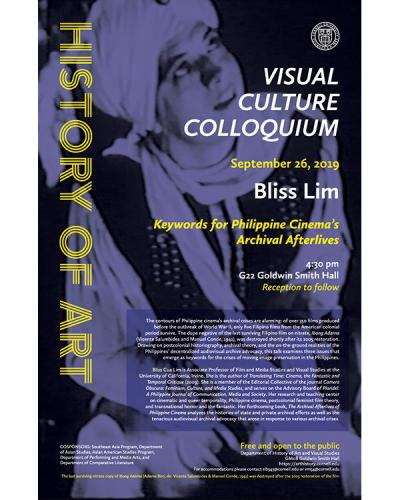Keywords for Philippine Cinema’s Archival Afterlives
Bliss Cua Lim, University of California, Irvine
Goldwin Smith Hall, G22 4:30 pm, reception to follow in History of Art Gallery
The contours of Philippine cinema’s archival crises are alarming: of over 350 films produced before the outbreak of World War II, only five Filipino films from the American colonial period survive. The dupe negative of the last surviving Filipino film on nitrate, Ibong Adarna (Vicente Salumbides and Manuel Conde, 1941), was destroyed shortly after its 2005 restoration.
Drawing on postcolonial historiography, archival theory, and the on-the-ground realities of the Philippines’ decentralized audiovisual archive advocacy, this talk examines three issues that emerge as keywords for the crises of moving image preservation in the Philippines. First, archival silences, which comprise not only the “lost films” of Philippine cinema but also the absences that are constitutive of the production of historical narratives. Second, archival power, which names dynamics of inclusion/exclusion in the production of historical narratives, as well as archival practices of appraisal that institutionalize a minute percentage of extant records. Finally, activism, advocacy, and “making-do” — creative workarounds that have emerged to ensure the archival survival of Philippine cinema — are also expressions of archival power. In response to my research request for access copies of 16mm propaganda films made in 1971-72, on the eve of the Marcos dictatorship’s declaration of Martial Law (PFM’s Declaration of Martial Law and From a Season of Strife), a handful of archivists from the Philippine Information Agency (PIA), the Cultural Center of the Philippines (CCP) and the Society of Filipino Archivists for Film (SOFIA) collaborated to produce rushed digital access copies of these films in 2015. The result of our collective efforts were undoubtedly poor images. Yet the makeshift digitization itself exemplified non-idealized archival practices of making-do (paggawa ng paraan) that marshal meager resources to buy time and keep things going. Given that the histories of prior state film archives’ collapse caution against the costs of inaction, perseverance and making-do in order to ensure access are striking traits of Philippine archiving cultures called-forth by conditions of archival fragility.
Bio:
Bliss Cua Lim is Associate Professor of Film and Media Studies and Visual Studies at the University of California, Irvine. She is the author of Translating Time: Cinema, the Fantastic and Temporal Critique (Duke University Press, 2009; Ateneo de Manila University Press, 2011). She is a member of the Editorial Collective of the journal Camera Obscura: Feminism, Culture, and Media Studies, published by Duke University Press, and serves on the Advisory Board of Plaridel: A Philippine Journal of Communication, Media and Society published by the University of the Philippines College of Mass Communication.
Her research and teaching center on cinematic and queer temporality, Philippine cinema, postcolonial feminist film theory, and transnational horror and the fantastic. Her next book, The Archival Afterlives of Philippine Cinema (forthcoming from Duke University Press), analyzes the histories of state and private archival efforts as well as the tenacious audiovisual archival advocacy that arose in response to various archival crises.

